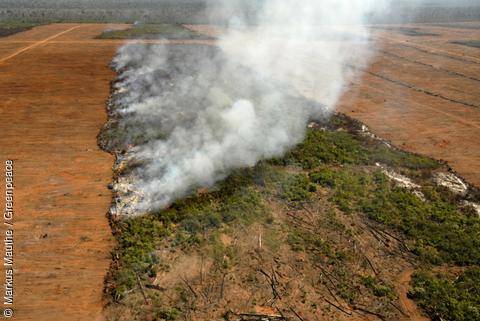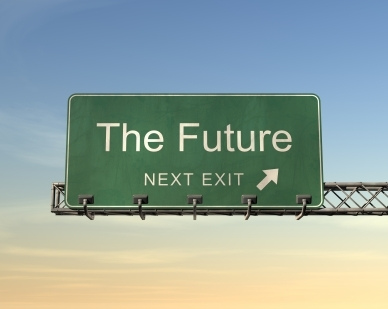We started the Anthropocene; human economic activity is driving this planet into a new geological
age. Since first estimates of “human domination of earth's
ecosystems” two decades ago (P.M. Vitousek et al. 1997, Science Vol. 277) much more evidence
has built up that our daily activities gather such
force that they drive the globe in the same manner as ordinary
natural process do. The size of human population, its appetite for natural resources, and the speed turning these around transform landscape, ecosystems and global biogeochemical cycles for, e.g. carbon, nitrogen, water or our wastes.
In addition we consume directly about 20% of the global primary production - the marine fishery
example “Modern fisheries, including both landings and
by-catch, currently consume 24-35% of global marine primary
production in the continental shelf and major up-welling areas,
corresponding closely to recent estimates that humans now appropriate
roughly one quarter of the land's potential net primary production
as well. Humans are thus the dominant marine predator on earth...
meaning that they [fisheries stocks] are being harvested at rates
estimated to be near their maximum sustainable limit, 24% are
over-exploited or depleted, meaning that they are being harvested at
rates not sustainable in the long term, and 1% are considered to be
recovering from depletion.” (J.E. Duffy, Marine Biodiversity
and Food; earthportal, quoted: 8th April 2012).
 |
| Modern slash and burn clearing for agriculture |
This experience calls for global stewardship, going well beyond
climate change concerns because most of our economic use of the planet's resources is undertaken in a stone-age like manner - "search, find and, gather" - as in modern marine fishery; or at best as "slash, burn and grow", as done once in neolithic agriculture, or nowadays for oil. However, many local settings or restricted use-cases of sustainable use are found, evidently most often for activities for which we care because of our cultural, social or economic value systems. It is understood that lasting, sustainable use of resources requires binding these value systems into one balanced set to guide our practice to the best of our knowledge.
State of Planet under pressure
Gathering for the
conference “Planet under Pressure” - 26th-29th March London - to argue how
to make best if that unprecedented situation our peers published the
“State of the Planet Declaration" [1]:
- Research demonstrates that the continued functioning of the Earth system as it has supported the well-being of human civilization in recent centuries is at risk. Without action, we could face threats to water, food, biodiversity and other critical resources: these threats risk intensifying economic, ecological and social crises, creating the potential for a humanitarian emergency on a global scale.
- In one lifetime our increasingly interconnected and interdependent economic, social, cultural and political systems have come to place pressures on the environment that may cause fundamental changes in the Earth system and move us beyond safe natural boundaries. But the same interconnectedness provides the potential for solutions: new ideas can form and spread quickly, creating the momentum for the major transformation required for a truly sustainable planet.
- The defining challenge of our age is to safeguard Earth's natural processes to ensure the well-being of civilization while eradicating poverty, reducing conflict over resources, and supporting human and ecosystem health.
- As consumption accelerates everywhere and world population rises, it is no longer sufficient to work towards a distant ideal of sustainable development. Global sustainability must become a foundation of society. It can and must be part of the bedrock of nation states and the fabric of societies.
What's on stage - one?
Curiously, the global process are less visible to us; we, as citizen in our daily life, cannot grasp easily the sheers size of our human activities. What does it mean 7.000.000.000 people consuming annually about 91.000 TerraWattHours energy? What does it mean that global primary production is about half terrestrial and half marine and we consume directly about a fifth of it?
Science, research and reason based choices can handle these complexities; and modern societies that have a science base could grasp them through their educational systems. Local, traditional knowledge based societies, although they miss the global scale, they have a way of functioning in which the need to nurture commons is a self-evident behaviour and thus stewardship comes naturally. Between these two poles there is a range of societies in which poverty ravages and thus neither caring of commons nor understanding the global picture is an evident option.
Thus it is to acknowledge:
“Humanity's impact on the Earth system has become comparable to
planetary-scale geological processes such as ice ages. Consensus is
growing that we have driven the planet into a new epoch, the
Anthropocene, in which many Earth-system processes and the living
fabric of ecosystems are now dominated by human activities.”
“These insights demand
a new perception of responsibilities and accountability of nation
states to support planetary stewardship. A crucial transformation is
to move away from income as the key constituent of well-being and to
develop new indicators that measure actual improvements in well-being
at all scales. Equity in opportunities to improve well-being and
eradication of poverty at the individual level will also play pivotal
roles in the transition towards planetary stewardship.”
What's on stage - two?
The global village is emerging rapidly, and it gets visible - least on this side of the digital divide. As villagers we know about our neighbours; their deeds, strengths and failures. As villagers we may hate each other, but even then we are bundled into one undertaking. Villagers know that they are bound to work together, or fail, in particular to face the challenges of the environment - be it on the fields of the Nile valley or keeping up shore defences at the North Sea. The village is a interconnected system of surprising complexity; mutual assistance and caring is possible as well as destructive run-away reactions. The risk for the latter rises in the global village.
Thus, opportunities and risks:
“The Earth system is a complex, interconnected system that
includes the global economy and society, which are themselves highly
interconnected and interdependent. Such systems can confer remarkable
stability and facilitate rapid innovation. But they are also
susceptible to abrupt and rapid changes and crises, such as global
financial meltdowns or the volatility of the global food system.”
"A commitment to the
proposal for universal Sustainable Development Goals is needed, as
goals for Global Sustainability. These should be developed to take
account of the synergies and trade-offs in and between areas such as
food, water and energy security, maintenance of biodiversity and
ecosystem services, sustainable urbanisation, social inclusion and
livelihoods, protection of seas and oceans, and sustainable
consumption and production."
What's on stage - three?
Monetary value is key to have built a global network of exchange of goods and services. Maximising monetary value is the main driver in our societies to reduce process inefficiency. It locked appealingly simple and worked convincingly if applied to local problems, as long as side effects could be externalised, following the "the solution to pollution is dilution" - approach; but that got stuck as "your solution is my pollution". There is the end to dilution. Thus, simplicity of optimised single value driven choices does not work any more..
Thus, value and action:
“Recognition of the monetary and non-monetary values of public
goods such as ecosystem services, education, health and global common
resources such as the oceans and the atmosphere. These must be
properly factored into management and decision-making frameworks at
the national and sub-national levels to ensure that economic
activities do not impose external costs on the global commons.
Corrective measures that internalize costs and minimize the impacts
on the commons need to be identified and implemented through
regulatory and market-based mechanisms.”
 |
| ...towards Anthropocene |
“Our highly
interconnected global society has the potential to innovate rapidly.
The international scientific community must rapidly reorganize to
focus on global sustainability solutions. We must develop a new
strategy for creating and rapidly translating knowledge into action,
which will form part of a new contract between science and society,
with commitments from both sides.”
One, two, three - thus!
We acknowledge that humanity's activities form now a planet-scale geological process, starting the Anthropocene. WE will keep it functioning - for our survival in the pressure cooker. Global stewardship will take care of the globe and its commons, of reason based choices favouring social inclusion, knowledge and participation.
[1] quotes in italic are from "State of Planet Declaration"



No comments:
Post a Comment